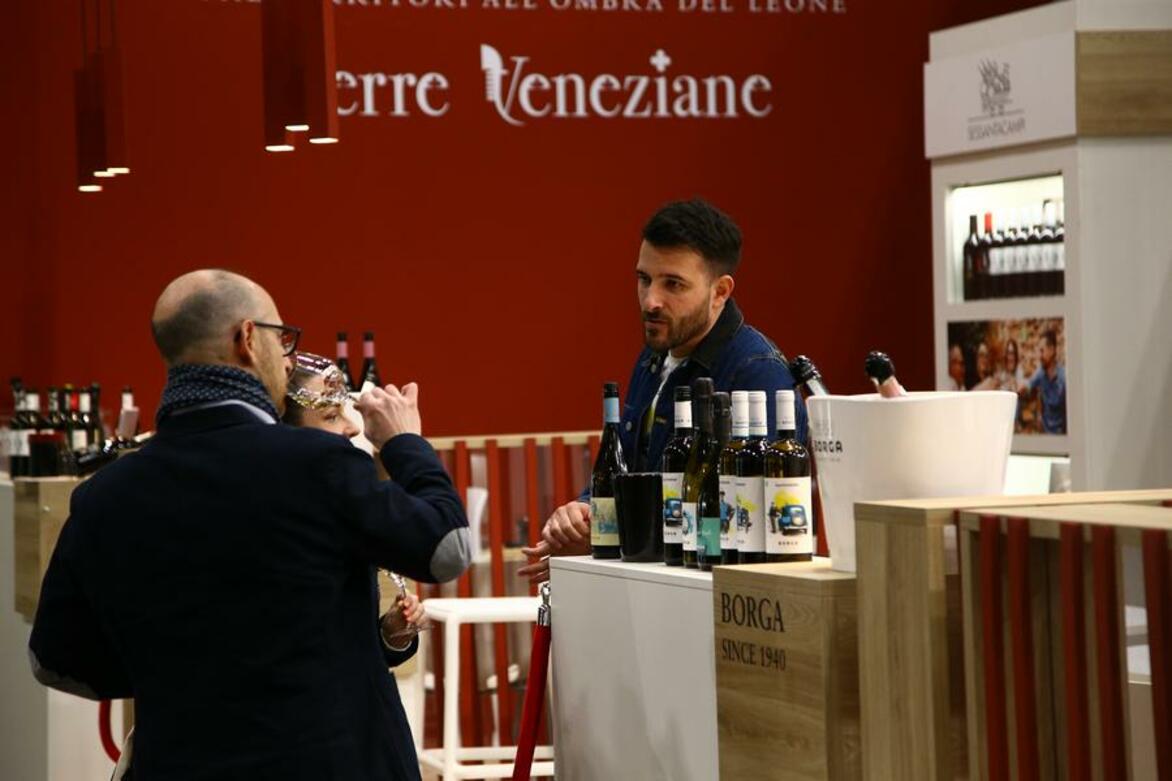Economic Watch: German Riesling producers brace for U.S. tariffs amid rising trade tensions
Xinhua
08 May 2025

German Riesling producers voiced concern over the potential fallout created by new U.S. tariffs, particularly for export-driven industries like wine.
TRIER, Germany, May 8 (Xinhua) -- As spring breathes life into the valley of Germany's southwest Saar region, winemakers are once again bracing for fallout from a looming U.S. tariff threat. Proposed trade measures targeting European wine imports have revived fears across the region, where producers say another round of duties could jeopardize their businesses.
The Saar region, featuring steep vineyards, is the spiritual home of Riesling, a white grape prized for its aromatic complexity and minerality. Yet the same geography that gives these wines their character also creates deep economic vulnerabilities.
With vineyards clinging to slopes as steep as 70 degrees, mechanization is virtually impossible. Every vine must be pruned and harvested by hand, driving labor costs far above industry averages. High tariffs have further pushed up production costs, squeezing the already slim profit margins.
At the heart of the tariff debate is the fate of small family-run estates like Weingut Peter Lauer, whose survival depends on transatlantic trade. "Our business model is about quality, not volume," said Florian Lauer, fifth-generation winemaker at the estate near Trier. "We don't have the industrial-scale efficiency. If tariffs erase what little profit remains, we simply can't afford to produce some of these wines anymore."
Lauer's winery produces around 100,000 bottles annually, with over 60 percent bound for export markets, more than a third of it to the United States. "The U.S. market is where we build brand recognition, and on which our long-term growth depends," he said.
Lauer recalled the previous major trade dispute between Europe and the United States, when the Trump administration imposed retaliatory tariffs in 2017, in response to European Union (EU) subsidies for aircraft manufacturer Airbus. German Riesling was among the products affected, and the impact was swift.
"Back then, we lost a third of our U.S. business," said Lauer. "If the new tariffs are implemented, the damage will be even more severe, not just for my winery, but for the entire region."
Economic pressures are already beginning to reshape the landscape. Lauer noted that some vineyards have been abandoned due to financial strain, and warned that a prolonged trade conflict could have long-term consequences. "In four or five years, you'll start seeing the results -- less wine being made, and fewer vines on the hillsides," he said.
During the last tariff round, retail prices of Riesling in the U.S. market jumped by 30 to 50 percent due to the multi-tiered distribution system, said Lauer, noting that as prices rose, demand fell sharply, dealing a heavy blow to exporters who rely on the American market.
German government and regional authorities have voiced concern over the potential fallout created by new tariffs, particularly for export-driven industries like wine. While Berlin has not issued sector-specific warnings, officials have reiterated support for multilateral trade frameworks and expressed strong opposition to unilateral tariff measures.
In response, Lauer has joined the U.S. Wine Trade Alliance, a coalition of American importers, retailers, sommeliers and foreign wine producers, lobbying U.S. trade authorities and lawmakers to reconsider the proposed measures.
Tariffs are not merely a concern for Europe. The U.S. wine industry, particularly in states like California and New York, also relies on a stable trade ecosystem. "American distributors, restaurants, and retailers turn one dollar spent on European wine into four dollars of local value," Lauer said. "If that chain breaks, everyone, from importers to sommeliers, takes a hit."
With a 10 percent tariff already in place, Lauer estimates that his winery's revenue has declined by 5 to 10 percent. An increase to 20 or 25 percent would bring his operations perilously close to the break-even point. "If that happens, we may be forced to withdraw from the U.S. market," he warned.
For now, winemakers wait, advocate, and hope that policymakers will choose cooperation over confrontation. As the vines begin to bloom across the steep hillsides, producers are acutely aware that decisions made thousands of kilometers away could determine the future of their craft.
Lauer called for Washington to reconsider its decision to impose tariffs. "You're hurting American wine drinkers, restaurant workers and small businesses ... trying to isolate the market only weakens your own industry," he said.
